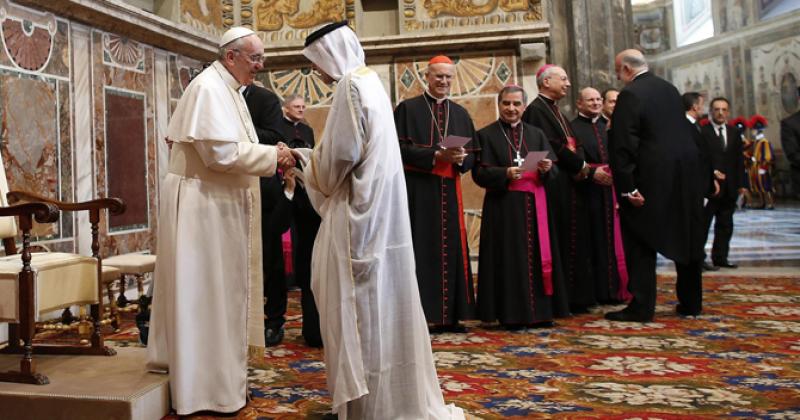The Pontifical Council for Interreligious Dialogue at the Vatican has issued a new document, which stated the question raised by several people nowadays, namely "Is there a chance for dialogue between Muslims and Christians?"
The frank and direct answer provided by the document is: "Yes, more than ever before." First and foremost, the vast majority of Muslims do not accept barbarism being carried out, where unfortunately the word "religion" is nowadays associated with the word "violence" at a time when all the believers in all religions are called upon to be advocates of peace rather than violence.
In the face of hatred and extremism incorporated in the political and religious speeches, the document signed by President of the Pontifical Council for Inter-religious Dialogue Cardinal Jean-Louis Tauran calls for promoting brotherhood and dialogue since the believers have a significant impact in bringing peace. "So long we believe that God created man whereby humanity constitutes a single family, and so long we believe as Christians that God is love, then the continuation of dialogue even at times of persecution can be a sign of hope. This does not mean that believers want to impose their own views, but it means that they want to bring about respect for differences, for freedom of belief and religion, as well as for the protection of human dignity and the love of the truth.''
The new document issued by the Pontifical Council for Inter-religious Dialogue, which was founded by Pope Paul VI in the wake of his historic visit to our holy land in 1964, does not conceal the fact that the crux of openness and alienation can be attributed to two factors of prime importance, namely family and school. The first one instills in children the proper way of viewing others, where they learn the proper way of dealing with others, including forgiveness and cooperation. It can also teach them curses, labeling other as infidels and viewing others as enemies.
The second one, namely school, involves instilling in students the roots of education and respect whether in school or outside school. It also involves the school curricula which are provided by states to their children and citizens, or the foreign curricula taught to our students in a foreign language. It is imperative in this regard, to emphasize or rather to overemphasize, that after a thorough review of our local curricula it is found that they definitely refrain from calling for respecting the other religion, as they do not mention it or rather view it as absolutely nonexistent.
How can we address dialogue between Muslims and Christians at a time when of students and our educational curricula make educational "acrobatic leaps'' by proceeding from mentioning the Roman culture straight to the Islamic culture without ever mentioning that Christianity originated here, in this region, and in that era. The thoughts relevant to cancellation, alienation and extremism are inherent in our curricula. The Catholic Center for Studies and Media has prepared a special report on this matter. How can we say that we promote religious tourism at a time when our curricula reports that there are public facilities in our community which include mosques and other houses of worship, without mentioning the word "church"?
Reverting to the document we say: We have to courageously reconsider the quality of the life of families, the methods of teaching religion and history, and the content of addresses made at our places of worship. The family and the school are the cornerstone of the world of tomorrow which is designed to achieve brotherhood and mutual respect.
Yes, the dialogue exists. We have to enhance it. This should not be limited to hotels and conferences, since it begins at home and at school.
